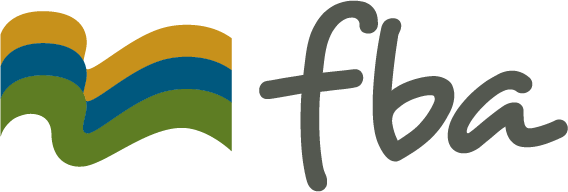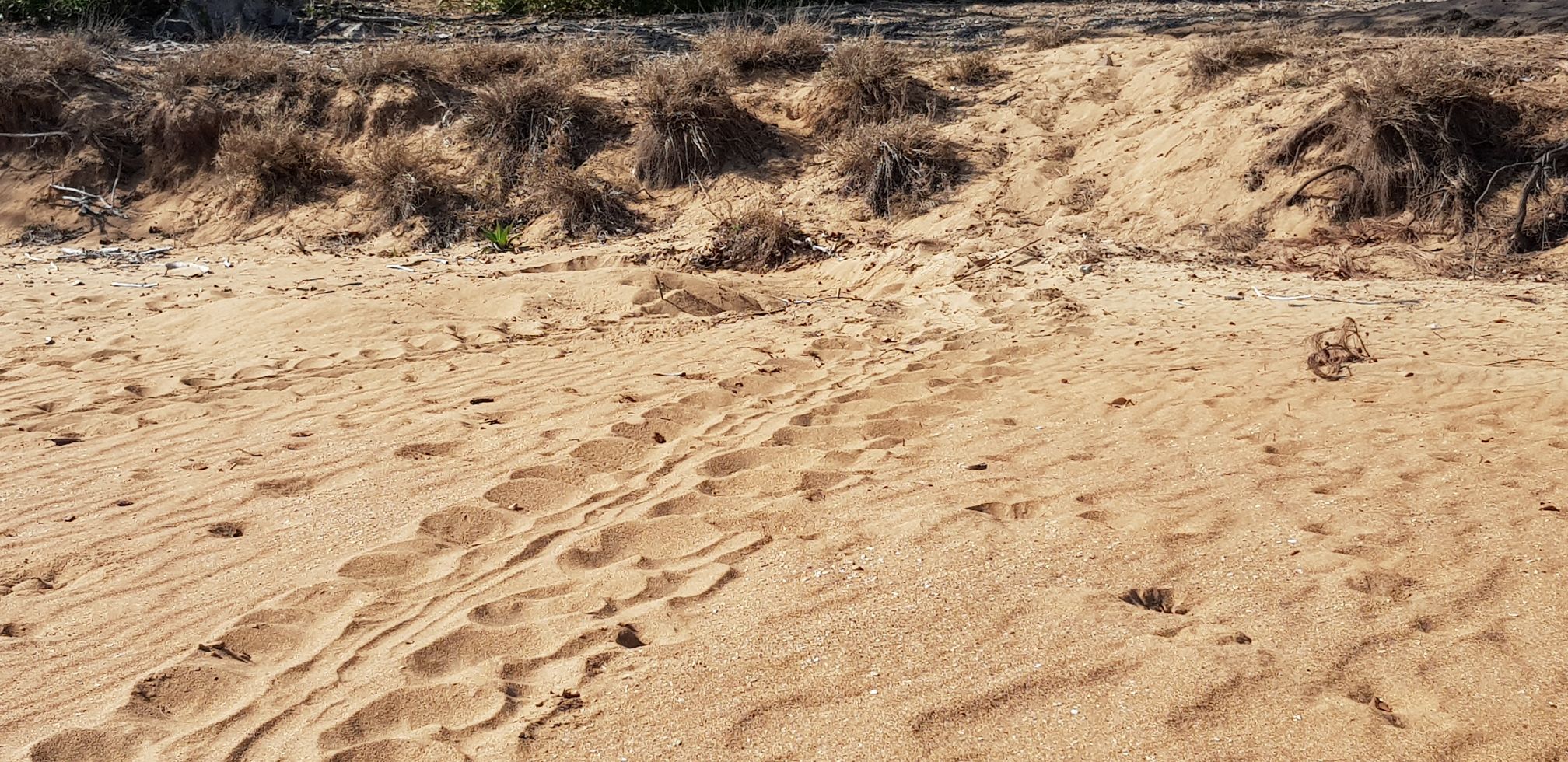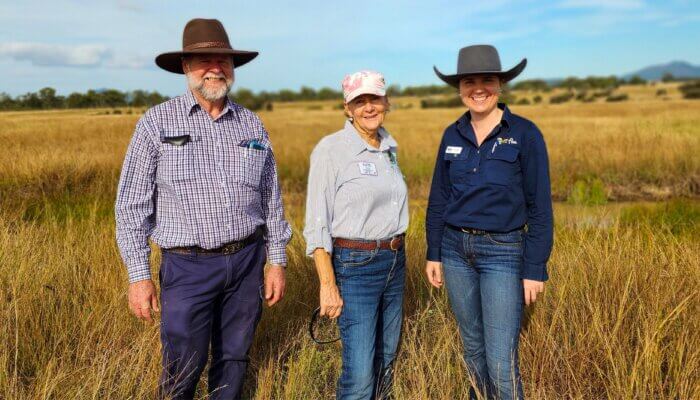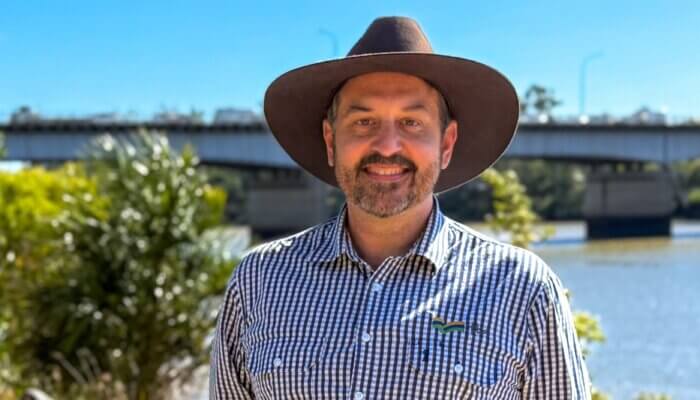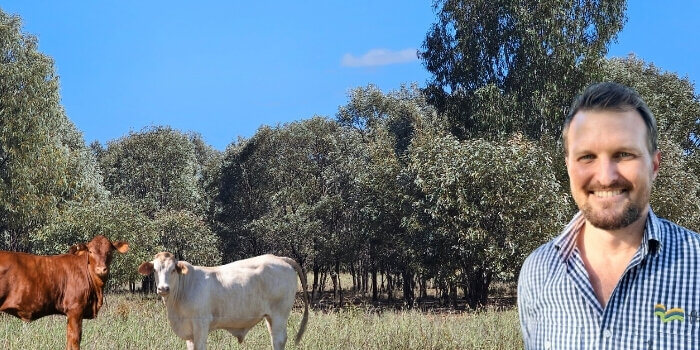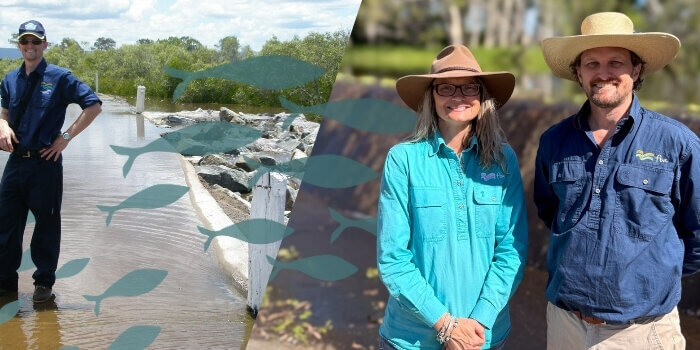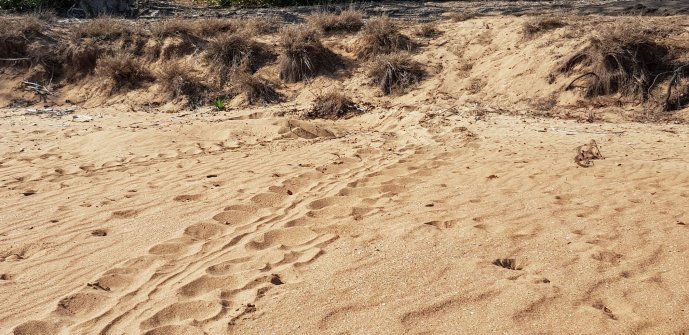
From clipboard to BioCollect App – TTCQ continues to grow
Posted on May 1st, 2020
Moving from a clipboard to the Atlas of Living Australia’s BioCollect App has helped Fitzroy Basin Association build a citizen science group that monitors marine turtles in central Queensland. Since adopting the new technology, community participation has more than doubled and participants have captured more data than ever before!
The Great Barrier Reef (The Reef) is home to six of the world seven species of marine turtles. All six species only nest on Australian shores and are, unfortunately, either listed as endangered or vulnerable under the Environmental Protection and Biodiversity Conservation (EPBC) Act.
It has always been understood that the pristine beaches on the southern end of the Great Barrier Reef are important to marine turtles. However, just how important has never formally been captured. Dedicated to helping vulnerable wildlife in the Fitzroy Basin, FBA set out to create a formalised data-keeping system. In 2016, the Team Turtle CQ project was created to gain a deeper understanding of marine turtle behaviour along the Curtis and Capricorn Coasts.
With hundreds of kilometres of beaches to monitor FBA quickly enlisted the help of the local community. Through training, volunteers gained the ability to spot signs of turtle activity and match turtle tracks with marine turtle species. In the early days, that data was first recorded on a clipboard then lodged with FBA via a phone call or email. In November 2017, FBA ditched the clipboard for the Atlas of Living BioCollect mobile application – revolutionising the work of the citizen science group.
The introduction of the BioCollect mobile application allows volunteers to input exact GPS locations, upload photos and answer several questions quickly and while on the beach. Now, when a survey is completed, the data is automatically uploaded to the Altas of Living Australia’s website platform. FBA then downloads, reviews and analyses the collective findings. With less time manually recording the volunteer’s findings, FBA worked to grow the size of the volunteer group and to focus on threats to nesting turtles.
Targeting central Queenslanders who regularly walked their local beach, FBA was overwhelmed with the number of turtle-lovers willing to volunteer. The 2017-2018 season attracted a heap of new interest, doubling the size of the group and taking the total number of active members to 25. Since then the passionate group has gone from strength to strength.
Over the 2019-2020 season, 36 volunteers completed a total of 251 BioCollect surveys, spying over 282 marine turtle tracks, 231 nests and 1,126 hatchlings.

The data collected by the citizen science group helps FBA, local councils and other stakeholders to craft and implement projects to safeguard the vulnerable species. Just one example of this is the work done to reduce the impact of the red fox.
The 2016-2017 season data revealed the red European fox (an invasive species) was preying on and harming many marine turtle nests and hatchlings. To reduce this threat, a den detection dog has been bought to the region before nesting activity began for the last three seasons.
From 2017-2019, 83 active fox dens have been fumigated. It is estimated that these actions have reduced the original fox population size by 66.67%. While fox damage was still observed and recorded by Team Turtle CQ volunteers in the 2019-2020 season, their impact is significantly less.
As this citizen science group expands, so does the innovative approaches to protect marine turtles. With an ever-increasing amount of data, our understanding of these beautiful creatures grow, and with it tactics to help the species escape extinction become more strategic.
This project is proudly supported by the Queensland Government—Queensland Citizen Science Grants.
